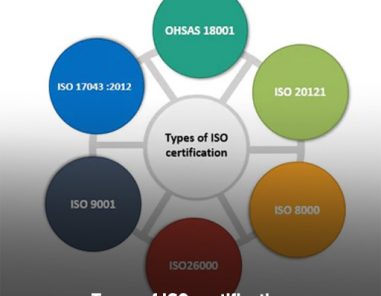
Types of ISO certification
As a business owner, if you plan on bidding on projects, particularly tenders...
Read MoreIt is a common misconception that International Organization for Standardization (ISO) grants certificates, but, this is not true. Instead, a Certification Body (CB) or a registrar will be the ones to grant certification. During the certification process, an accredited auditor will evaluate your management system to measure its conformity to the recommendations of the chosen standard. Depending upon your performance, you are either granted a certificate or given an amount of time to address the identified non-conformities. In this article, we will talk about why an organisation needs to choose an ISO certification body and the importance of choosing a certification body that is a perfect fit for your organisation.
A certification body is an organisation that has the capability to provide an objective assessment based around the chosen standard. For example, if you are implementing ISO 9001 within your organisation, a certification body will have the capability to test your Quality Management System (QMS). Similarly, if you are implementing ISO 14001 in your organisation, the certification body will have the experience, equipment and knowledge to assess the functionality of your Environmental Management System (EMS).
The audit that is conducted is fair, objective and comprehensive. The certification body will award a certificate to the organisation that shows its compliance with the requirements set out in the standard.

Certification to ISO standards helps to provide assurance that an organisation complies with a set of requirements. The granted certificate which states that an organisation has implemented and is maintaining a compliant management system is provided by a certification body.
In other words, a certification body is responsible for auditing your management system, finding nonconformities, creating a report and granting a certificate on your satisfactory performance. Organisations utilise certification bodies to obtain independent recognition, as recognition is becoming increasingly important in a globalised world where potential customers have no direct contact with their potential suppliers.
Certification bodies maintain the authority to grant certificates because they are compliant with ISO/IEC 17021:2015 conformity requirements. The ISO/IEC 17021:2015 standard provides requirements for bodies that evaluate, audit and certify the management systems of other organisations. ISO/IEC 17021 ensures international acceptance of certification bodies’ certificates by requiring that all accreditation bodies belong to an internationally accredited organisation like the International Accreditation Form (IAF).
The IAF operates a programme for accreditation bodies dealing with conformity assessment to ensure that the certification of products, processes or services is standardised throughout the world.
Many organisations commit the grave mistake of only utilising price as a selection criterion. ISO certification is not a commodity where you can choose the lowest price and not have any repercussions. If your only focus is price, you will be compromising on the quality, experience and reputation of an ISO certification body. We have already talked about the ISO certification cost and provided complete information about it.
Moreover, the certification process is more than just a document-acquiring process. It is an opportunity for your organisation to identify its weaknesses and areas of strength. If this opportunity is duly explored, your management system will become more efficient, sustainable and effective.
As a result, you can leverage many benefits such as increased productivity, increased profits, reduced wastage, better brand credibility, higher employee engagement and enhanced customer satisfaction. This is why it is imperative that you choose a certification body that is the right fit for your organisation.
Here, a right fit can be described as someone who has the same ethics, values and objectives as you. If you and your certification body have mutually beneficial goals, similar styles of working and respect for each other, your certification process will become a delight instead of a burden.

With plenty of ISO certification bodies to choose from, how can you make the right decision? Although there is no universal rule to select the “perfect” certification body, there are some pointers that can guide you. Remember, every organisation is unique and since every organisation’s values differ from each other, what works for one organisation may not work for you.
Having said that, the criteria for selecting an ISO certification body include checking their:
The ISO Council, with years of experience working with companies active in different fields and providing dedicated ISO consulting services, is the best option for issuing ISO.
It is a common myth that ISO grants the certification. Certification bodies that adhere to ISO/IEC 17021 are able to grant certificates. To acquire certification, you have to show documented evidence that you are adhering to the recommendations of your chosen standard and clear a physical assessment of your management system. To select a certification body, you should consider their reputation, accreditation, experience, maturity, flexibility and specialisation.
ISO certification gives your organisation a competitive edge. By helping you increase operational efficiency and overall product consistency, your business credibility and authority will soar to new heights.

Copyright © 2025 The ISO Council | Privacy Policy